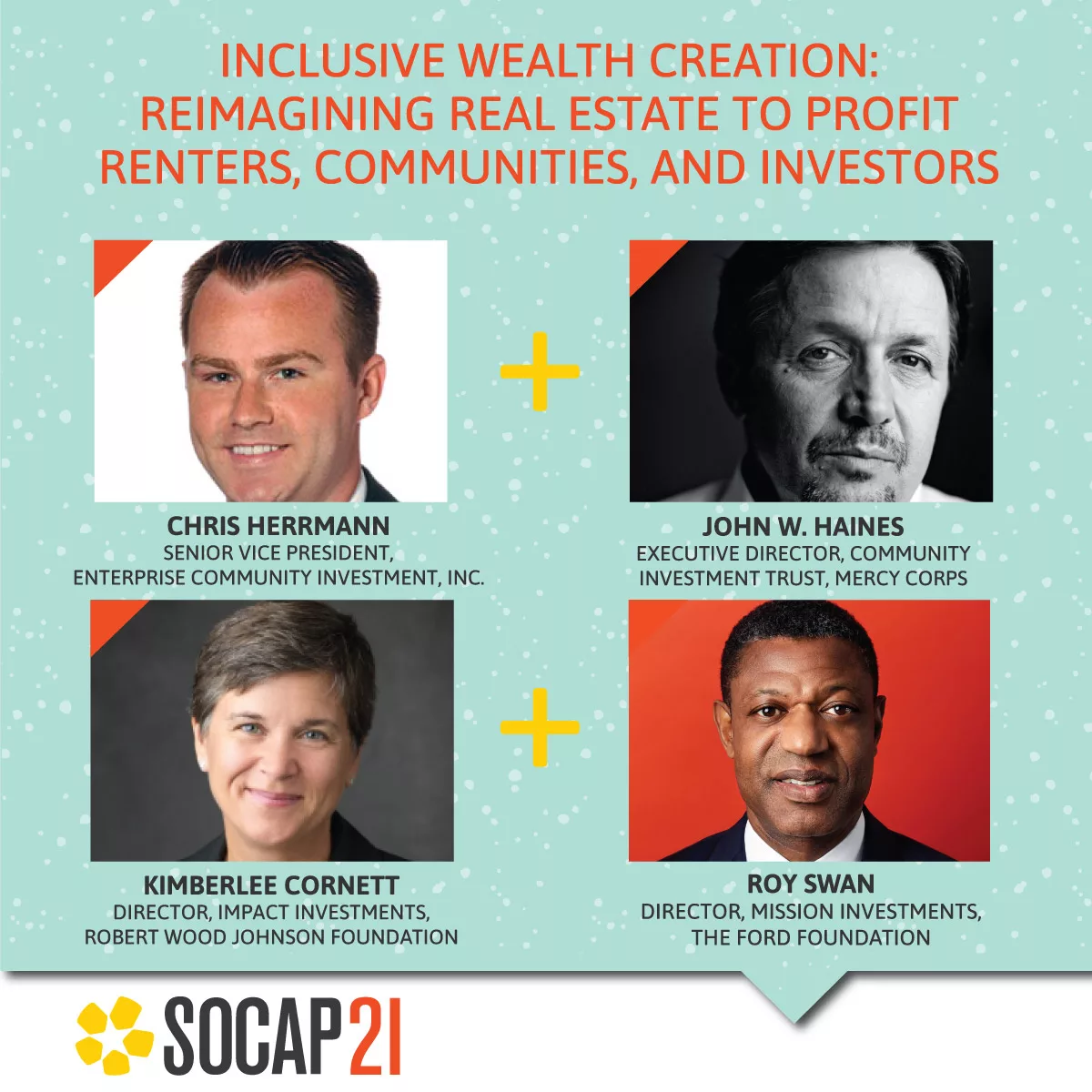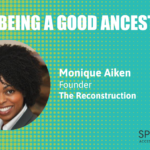SOCAP21: Inclusive Wealth Creation: Reimagining Real Estate to Profit Renters, Communities, and Investors
The traditional American Dream has long included home ownership as a connection to community. But barriers in financial systems make it more challenging for People of Color or low- or moderate-income people to attain loans to realize that goal.
More inclusive real estate investment models are emerging as alternatives to the current system, where the wealth generated by rentals and commercial real estate tends to pass through communities. During this SOCAP21 session, foundation leaders and community innovators offered a look at some of the new models they are advancing, where renters can profit from apartment buildings where they live, communities can earn from places where they shop, and impact investors can create a new frontier of wealth creation for generations to come.
Session moderator Chris Herrmann, Senior Vice President at Enterprise Community Investment, Inc., said these models stand to benefit local communities by strengthening residents’ neighborhood connections as well as their finances. Both are important components in the pursuit for a more just and equitable society, he said.
“This broader concept of shared equity can apply in multiple forms of real estate. Certainly there are challenges. The subject is worth the effort. The goal is ultimately worth breaking down those reasons not to do something.”
Chris Herrmann, Senior Vice President at Enterprise Community Investment, Inc.
One program that is making a difference and building community in Portland, Oregon, is the Community Investment Trust at Mercy Corps. Executive Director John W. Haines said the trust provides a long-term path to collective ownership of real estate for a monthly investment of $10 to $100.
“The chief goal is wealth-building and inclusion — family and community wealth-building together,” he said. “We now are working in a dozen other cities to replicate the program.”
By incorporating educational elements such as a class on real estate ownership, Community Investment Trust puts participants on an upward path of understanding. Haines said they’ve also found benefits beyond financial performance, as two-thirds of participants report they are more active in their neighborhoods and vote in elections.
Kimberlee Cornett, Director, Impact Investments at Robert Wood Johnson Foundation, said the organization’s impact investments are shaped to accelerate the foundation’s programmatic work focused on health equity and the social factors that contribute to health.
“We’ve started to take a different lens on health and think about, can we as a society achieve health equity without addressing structural racism? That is a prerequisite to getting to health equity. Home ownership has been actively denied to communities of color.”
Kimberlee Cornett, Director, Impact Investments at Robert Wood Johnson Foundation
RWJF is working to create a spectrum of home ownership opportunities that also provide the opportunity for people to build wealth for themselves and their families. These include investments in a manufactured housing program that gives residents the opportunity to finance the park and own and operate it as a cooperative, and a mortgage product designed to help people get over barriers to homeownership.
“People are healthier both physically and mentally when they are safely and securely housed,” Cornett said. “Owners have a voice in their community, and we think that’s really important.”
Roy Swan, Director, Mission Investments at The Ford Foundation, said its investment themes include addressing the lack of multi-family affordable rental housing. “Renters are paying more than they should pay because of that shortage,” he said. “We allocate our endowment capital to support the increase in the number of affordable rental housing units through preservation, new construction, or conversion.”
With a greater supply of affordable rental units, he said, people would have the opportunity to save more money and build their wealth.
Watch Inclusive Wealth Creation: Reimagining Real Estate to Profit Renters, Communities, and Investors
Speakers:
Chris Herrmann, Senior Vice President at Enterprise Community Investment, Inc.
Kimberlee Cornett, Director, Impact Investments at Robert Wood Johnson Foundation
Roy Swan, Director, Mission Investments at The Ford Foundation
John W. Haines, Executive Director, Community Investment Trust at Mercy Corps







